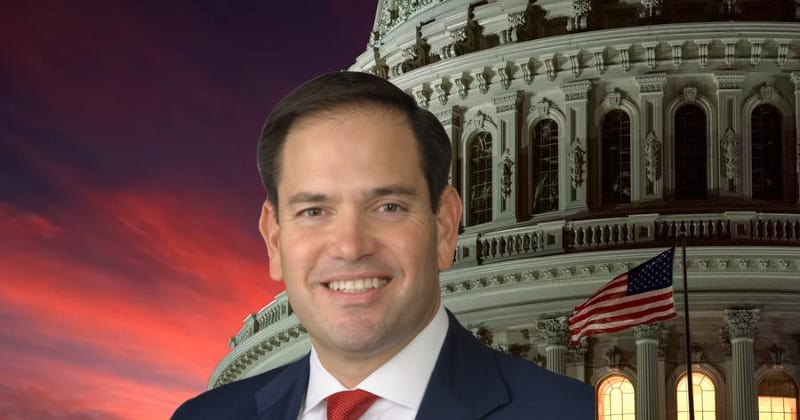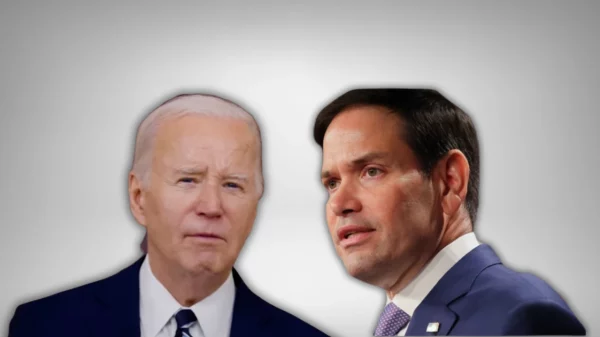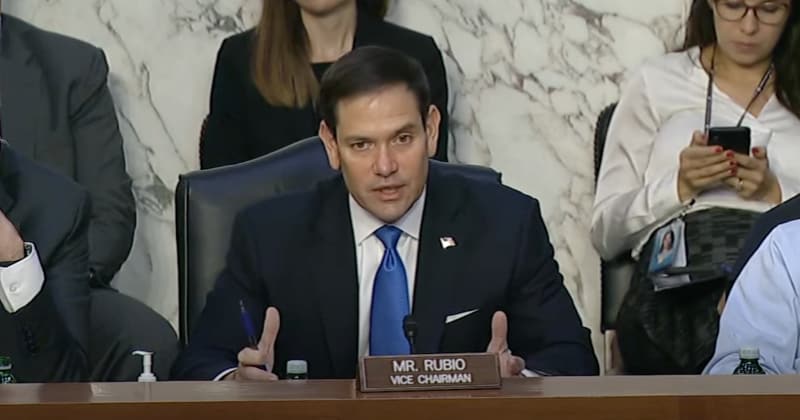Both of Florida’s two U.S. senators–Republicans Marco Rubio and Rick Scott–signed a letter led by U.S. Sen. David Perdue, R-Ga., expressing concerns with the impact that deteriorating global market conditions caused by COVID-19 will have on developing countries and the potential geopolitical implications of relief efforts.
While the senators support efforts to provide aid for developing countries, in a letter to U.S. Treasury Sec. Steven Mnuchin and U.S. Sec. of State Mike Pompeo, they cautioned that the U.S. must be wary of enabling China’s debt-trap diplomacy.
The senators outlined specific actions the U.S. should take in response to China’s predatory lending practices:
- Continue efforts to help countries review the viability of BRI projects
- Closely monitor countries now buckling under Chinese debt
- Support offering debt restructuring to troubled economies through the IMF and World Bank
- Require any country that requests IMF assistance to be transparent in all outstanding financial and legal obligations, including BRI agreements and Chinese debt
- Pressure Chinese institutions to renegotiate the underlying debt of developing countries
The full text of the letter is below.
Dear Secretary Mnuchin and Secretary Pompeo,
As the United States addresses the fallout caused by the COVID-19 pandemic, we write to express our concerns with the impact that deteriorating global market conditions will have on developing countries and the potential geopolitical implications of relief efforts.
On March 30, the United Nations called for a $2.5 trillion coronavirus relief package to aid developing countries affected by the pandemic. With the flight to safety, decline in commodity prices and dramatic appreciation of the dollar, many developing nations will face difficulty refinancing their existing debt, without considering the billions of dollars in additional loans they will need to combat the COVID-19 pandemic. Already, by the end of 2021, $2.7 trillion in debt in the developing world must be repaid or refinanced. On April 13, the International Monetary Fund (IMF) announced it would provide immediate debt relief to 25 of its poorest member countries to allow them to focus more financial resources on addressing the pandemic. However, as deliberation on a broader relief package continues, we urge the State Department and the Treasury to consider the impact of the Chinese-financed Belt and Road Initiative (BRI) on the finances of many of these troubled economies and policy implications of additional IMF or World Bank support.
Over the past decade, China has expanded its international financing efforts through BRI, particularly with developing countries who require capital for infrastructure in order to be competitive in the 21st century global economy. However, unlike financing through multilateral institutions like the World Bank and IMF, Chinese lending is inconsistent with global standards of governance. BRI loans financed by China’s large policy banks like the China Development Bank and the China Export Import Bank typically carry tougher terms, including higher interest rates and shorter payback periods. Borrowers are often times required to pledge existing assets or resources as collateral and place significant sums in escrow accounts located within China. This is not surprising, given that BRI loans are only partly made with an eye on economic returns; very often, they are motivated by expectations of political, rather than economic, gain.
Most concerning, consequently, is that BRI loan agreements, which are frequently crafted with nondisclosure clauses, are withheld from public view. A 2019 study concluded that 50 percent of China’s loans to developing countries go unreported, meaning these debts do not appear in the “gold standard” data sources provided by the World Bank, the IMF or credit-rating agencies. In total, this adds up to more than $200 billion in hidden Chinese overseas loans, resulting in an incomplete picture on how much countries around the world owe to China and under which conditions. The same study estimated that around a dozen of the poorest countries owed debts to China equal to 20 percent or more of their annual GDP.
Recently, some BRI recipients have awakened to the predatory nature of BRI financing. The price of debt relief could be a permanent forfeiture of sovereign territory, the surrender of strategic assets and natural resources or foreign policy concessions. For example, in 2017, when Sri Lanka was unable to repay over $1 billion of Chinese debt for constriction of the Hambantota Port, a Chinese state-owned company took control of the port under a 99-year lease. Moreover, foreshadowing what’s at stake today, it was the last financial crisis in 2008 that helped sow the seeds of the China Ocean Shipping Company’s (COSCO) eventual majority stake of Piraeus Port in Greece.
Already, the COVID-19 crisis has led BRI recipients like Pakistan, Serbia and Ethiopia to publicly praise China in exchange for much needed medical assistance as China promotes its “Health Silk Road” component of BRI.11 However, praise will unlikely be enough for debt forgiveness. Domestic economic constraints in China stemming from COVID-19 will likely make China less willing to roll over debts as they mature, which could exacerbate emerging-market liquidity challenges. As projects struggle in areas of strategic interest, China will be tempted to safeguard its investments and political influence.
Last year, the State Department and the U.S. Agency for International Development (USAID) created advisory teams to help countries review the viability of BRI projects. The U.S. must continue these efforts, but additionally, must closely monitor countries now buckling under Chinese issued debt. Through U.S.-led institutions like the IMF and the World Bank, the U.S. should support offering debt restructuring to these countries as needed.
Further, it should be the policy of the U.S. that U.S.-led financial support should require any country that requests IMF or other forms of international assistance to be transparent in all outstanding finances and legal obligations, including BRI agreements and Chinese debt. Concurrently, there must be U.S.-led international support to pressure Chinese institutions to renegotiate the underlying debt of developing countries without a political quid pro quo. Short of this, U.S. and other Western taxpayers would be in essence bailing out Chinese financial institutions and enabling China’s debt-trap diplomacy.
We look forward to your prompt and thorough response, as well as any actions you plan to take.














